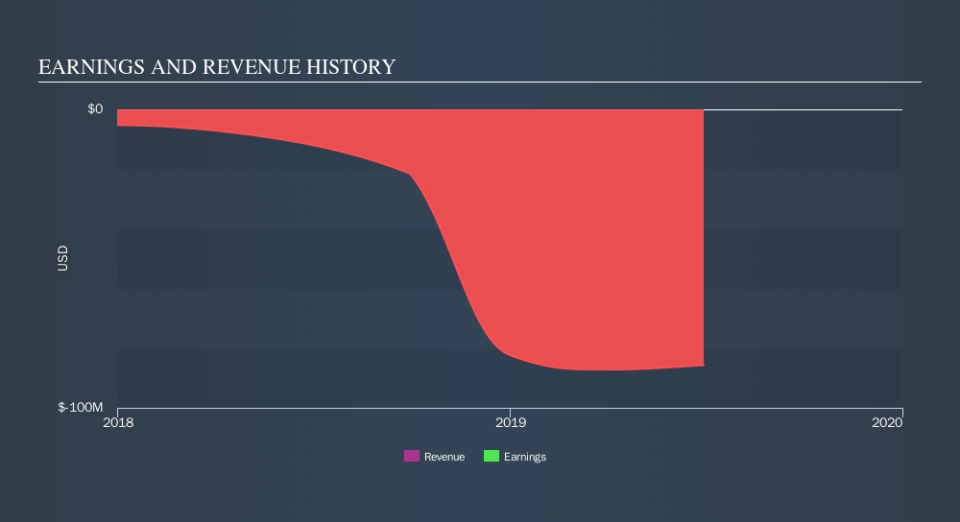Does Akero Therapeutics, Inc. (NASDAQ:AKRO) Need To Raise More Cash?

As the US$543m market cap Akero Therapeutics, Inc. (NASDAQ:AKRO) released another year of negative earnings, investors may be on edge waiting for breakeven. The single most important question to ask when you’re investing in a loss-making company is – will it need to raise cash again, and if so, when? Cash is crucial to run a business, and if a company burns through its reserves fast, it will need to raise further funds. This may not always be on good terms, which could hurt current shareholders if the new deal lowers the value of their shares. Looking at Akero Therapeutics’s latest financial data, I will estimate when the company may run out of cash and need to raise more money.
See our latest analysis for Akero Therapeutics
What is cash burn?
With a negative free cash flow of -US$14.8m, Akero Therapeutics is chipping away at its US$163m cash reserves in order to run its business. Companies with high cash burn rates can eventually turn into ashes, which makes it the biggest risk an investor in loss-making companies face. Unprofitable companies operating in the exciting, fast-growing biotech industry often face this problem, and Akero Therapeutics is no exception. The industry is highly competitive, with companies racing to innovate at the risk of burning through their cash too fast.
When will Akero Therapeutics need to raise more cash?
One way to measure the cost to Akero Therapeutics of keeping the business running, is by using free cash flow (which I define as cash flow from operations minus fixed capital investment).
Free cash outflows declined by 68% over the past year, which could be an indication of Akero Therapeutics putting the brakes on ramping up high growth. If free cash outflows are maintained at the current level of -US$14.8m, then given the current level of cash in the bank, Akero Therapeutics will not need to raise capital any time within the next three years. Although this is a relatively simplistic calculation, and Akero Therapeutics may continue to reduce its costs further or borrow money instead of raising new equity capital, this analysis still gives us an idea of the company’s timeline and when things will have to start changing, since its current operation is unsustainable.
Next Steps:
Loss-making companies are a risky play, even those that are reducing their cash burn over time. Though, this shouldn’t discourage you from considering entering the stock in the future. The cash burn analysis result indicates a cash constraint for the company, due to its current level of cash reserves. The potential equity raising resulting from this means you might get a better deal on the share price if the company the company raises capital again. This is only a rough assessment of financial health, and AKRO likely also has company-specific issues impacting its cash management decisions. I suggest you continue to research Akero Therapeutics to get a more holistic view of the company by looking at:
Future Outlook: What are well-informed industry analysts predicting for AKRO’s future growth? Take a look at our free research report of analyst consensus for AKRO’s outlook.
Management Team: An experienced management team on the helm increases our confidence in the business – take a look at who sits on Akero Therapeutics’s board and the CEO’s back ground.
Other High-Performing Stocks: If you believe you should cushion your portfolio with something less risky, scroll through our free list of these great stocks here.
NB: Figures in this article are calculated using data from the trailing twelve months from 30 June 2019. This may not be consistent with full year annual report figures. Operating expenses include only SG&A and one-year R&D.
We aim to bring you long-term focused research analysis driven by fundamental data. Note that our analysis may not factor in the latest price-sensitive company announcements or qualitative material.
If you spot an error that warrants correction, please contact the editor at editorial-team@simplywallst.com. This article by Simply Wall St is general in nature. It does not constitute a recommendation to buy or sell any stock, and does not take account of your objectives, or your financial situation. Simply Wall St has no position in the stocks mentioned. Thank you for reading.

